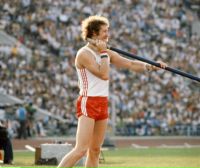Содержание
Olympics 1980. Water Polo. Photos, videos, memories of the Champions of Vladimir Akimov
ON THE EVE OF OLIMPIADY-1980
CONFLICT WITH THE TRAINER OF CSK NAVY
The CSK Navy military team was the best water polo team in the entire country of those years. Two interesting photos of 1976-1977.
The First – Vladimir Akimov (the second on the right in the military uniform of the officer) at the conference;
the second photo — a NAVY military poster “Comrades sailors! Follow an example of champions!” with the photo of the CSC Navy military team (water polo) – at that time twelve-time champions of the Soviet Union, owners of the Cup of the USSR (Vladimir Akimov is the second at the left).
Third photo: in 1979, Vladimir Akimov (standing in the top row, right) in the national team of Moscow’s water Polo.
In the photo a lot of prominent Soviet water Polo players, but I want to focus on the man who holds the ball. His name is Igor Roslyakov, later known as FR Basil is one of the three killed in 1993, the Optina monks. I knew him in my childhood.
I knew him in my childhood.
The newspaper “Soviet Sport”, 10 October 1979. The CSK Navy military team became owner of the Cup of the Soviet Union on water polo. Vladimir Akimov on a photo — sits the second at the left:
The Olympic Games of 1980 came. To get into the USSR national team was not only difficult and honourable, it was absolutely impossible! There were selected the best players from all the Soviet Union.
In two years preceding the Moscow Games about 150 candidates for the national team of the Soviet Union were selected. Partly it has been connected also with the fact that the team management couldn’t decide who will be the chief coach. After the Olympic Games in Montreal the team was headed by Leonid Osipov. Then he was replaced by Vladimir Semenov. And in the 1979th, before the Olympic Games Boris Popov has been appointed.
Mikhail Ivanov remembers· The Olympic champion in water polo (1980), the Honoured Master of Sports
For anybody not a secret that my father and my uncle – on the one hand – and the head coach of CSC Navy military Shidlovsky Alexander Georgiyevich – on the other hand – were not on good terms.
There were subjective reasons – the transfer of a bad relationship of the trainer from Anatoly Akimov to Vladimir, and objective – reciprocal sharpness of my father and his behavior.
So Vladimir Akimov has appeared in the Olympic team of the USSR and he should play the next 5 years of his life as a part of the national team of the Union, but ahead there were Olympic Games-1980.
Shidlovsky didn’t allow Volodya to play, constantly held him on a replacement bench. Volodya in irritation convinced me to move with him to the Baltic States, he really wanted to leave CSK Navy military, and I forced him not to do anything stupid. In the 1979th year the head coach of USSR national team Boris Nikitich Popov invites Vladimir Akimov in the national team of the Union actually … from a spare bench!
My mother Svetlana remembers
The Olympic Champion Mayt Riysman will tell below about this paradox in the audio-interview: “Two most great trainers – Popov and Shidlovsky with absolutely different approach to Vladimir Akimov.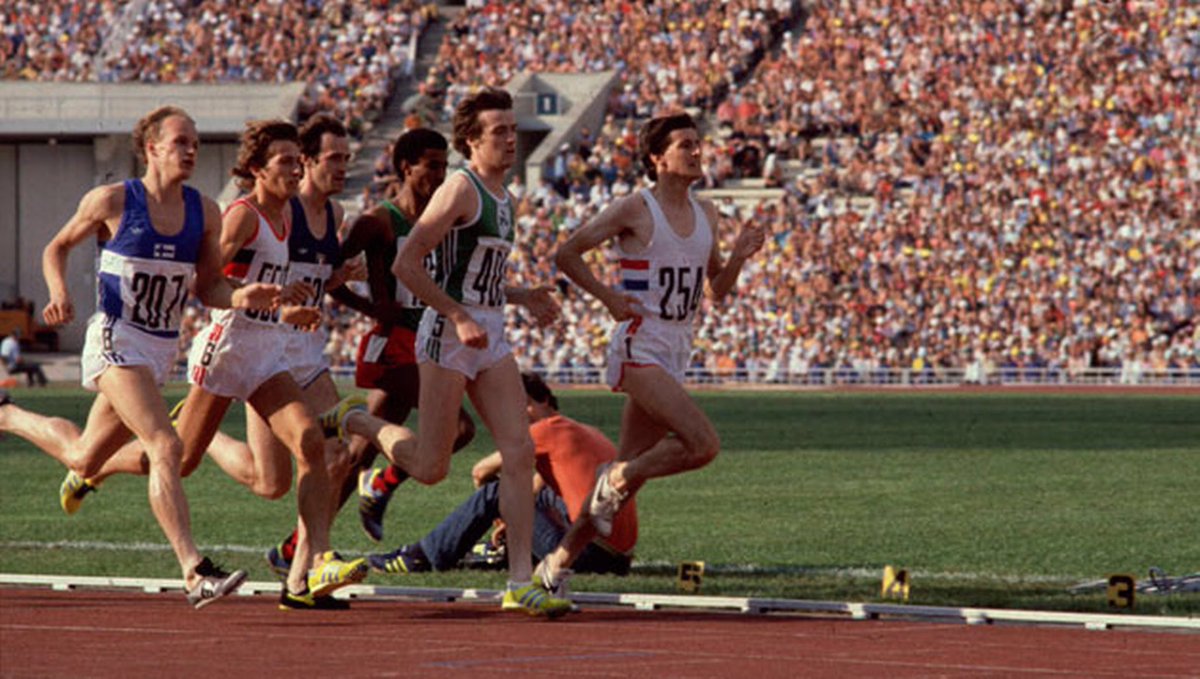 Boris Nikitich has found an approach for the national team, and Volodya became the main defender at the Olympic Games and in the national team of the Union”
Boris Nikitich has found an approach for the national team, and Volodya became the main defender at the Olympic Games and in the national team of the Union”
OLYMPIC GAMES OF 1980 IN MOSCOW
VLADIMIR AKIMOV AS A PART OF THE NATIONAL TEAM OF THE USSR ON WATER POLO
The historical photo from the newspaper on which players of the USSR national team were traditionally brought after general meeting on the Red Square to Lenin’s Mausoleum and to the Tomb of the Unknown Soldier. On the photo – players of the Olympic water polo team: Mshveniyeradze, Kabanov, Sobchenko and Akimov.
After the departure from the USSR national team of such great defenders as A. Dreval, Anatoly Akimov, A. Dolgushin the coaches of the national had a question — who will come to replacement them? And the choice has fallen on the younger brother of the well-known dynasty of Akimovs – Vladimir.
He was the main player of the CSK Navy military water polo team. Having taken all the best from the brothers, he became the main defender of the USSR national team at the Olympic Games of 1980.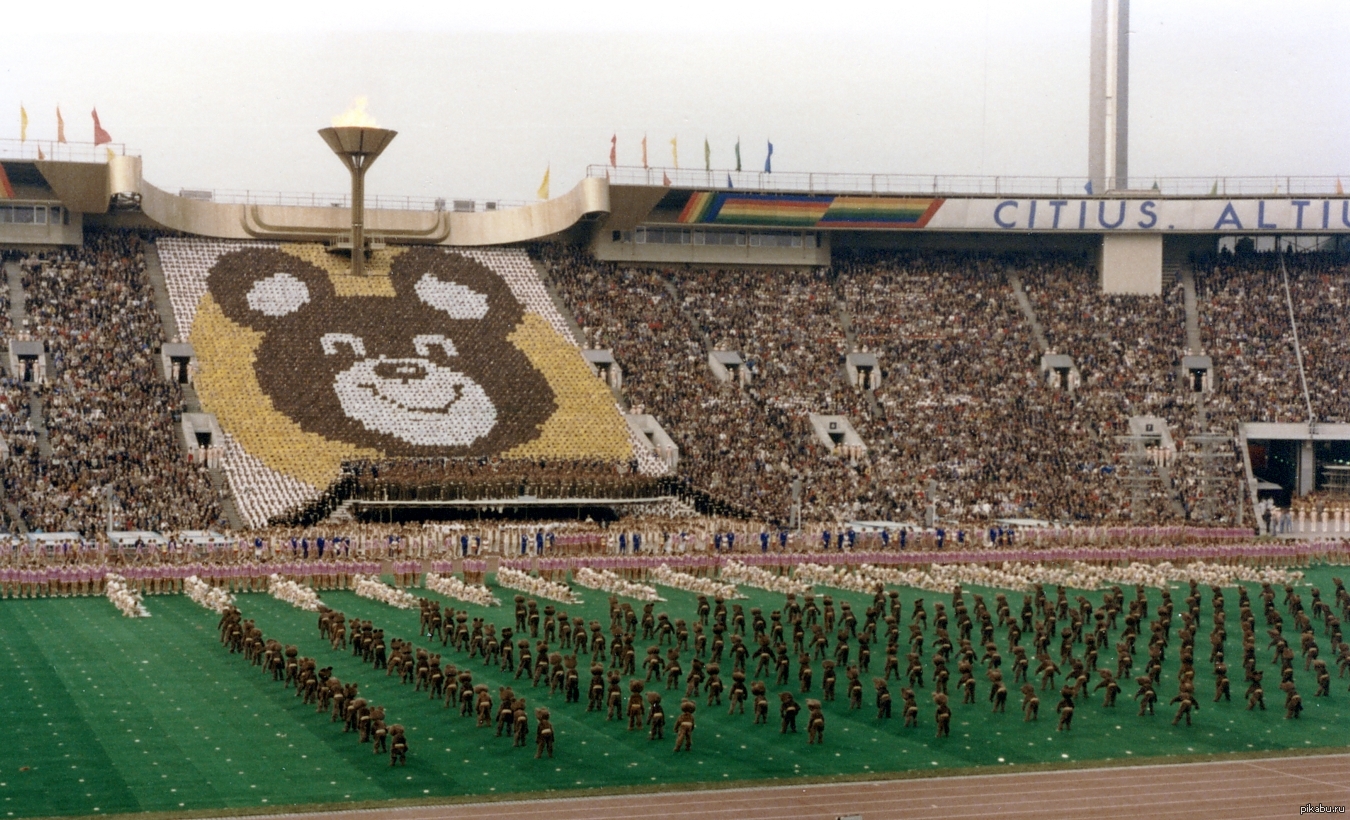 Vladimir Akimov possessed very good technology of selection of a ball at center forwards, good swimming preparation and a good shoot for goal. It was always comfortable to play with him in couple to me.
Vladimir Akimov possessed very good technology of selection of a ball at center forwards, good swimming preparation and a good shoot for goal. It was always comfortable to play with him in couple to me.
He could always give a prompt help, lend a shoulder.
The Olympic champion in water polo (1980), the Honoured Master of Sports, Evgeny Grishin remembers (“Dynamo” Moscow)
On the photo: Roman Akimov with legends of water polo — Boris Grishin (at the left) and Evgeny Grishin (on the right).
THE OLYMPIC CHAMPION OF 1980, THE HONOURED MASTER OF SPORTS SERGEY KOTENKO REMEMBERS («DYNAMO» ALMA-ATA)
Speaking about Volodya it is necessary to tell that the well-known family of Akimovs has made a big contribution to development of a water polo. In Akimov’s family two Olympic Champions. And Volodya, in my opinion, has surpassed the brother and was one of the best and bright players of the time. Volod’ka was not just the strongest defender, but the attacking defender.
He was very inconvenient for the opponent, in game was rigid and uncompromising though in private life he was very kind, soft and sympathetic guy. Volodya was always the soul of the company. At the Olympic Games we lived in one room with Volodya, and it was always easy and pleasant to be on friendly terms with him.
olodya was a ready to help guy and very attentive to others gaps, was always ready to come to the rescue, sometimes even to the detriment of himself and the family. It is a pity to me that he isn’t with us now that it is impossible to phone and meet, but there is a kind memory of Volod’ka Akimov and nobody can take away it.
The remarkable and worthy son has grown up who carefully keeps the memory of his father Vladimir Akimov. And while all of us remember Volodya he lives in our hearts.
PHOTOS FROM THE OLYMPIC VILLAGE
There are three unique photographs from the personal archive of the Olympic Champion Mikhail Ivanov. On the first photo the USSR national water polo team, 1980, the Olympic Village, the second photo of the dining room of the Olympic Village (from left to right): Alexey Barkalov, Vladimir Akimov and Erkin Shagaev:
On Birthday of Vladimir Akimov which has coincided with the Olympic Games-80 his photo has appeared in the wall newspaper in the Olympic village with congratulations from the team:
VICTORIES OF THE OLYMPIC TEAM OF THE USSR
The Olympic team of the USSR on water polo where Vladimir Akimov played confidently defeated the team behind the team at the Olympic Games-80.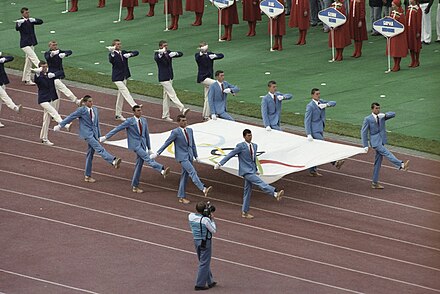
Every day news about victories of the Soviet national team were published in all mass media. Here are three articles from the Olympic issues of the Sovetsky Sport newspaper.
The first article — about a convincing victory of USSR national team on water polo over the national team of Italy, the second material — about the recur game of USSR national team with the Spanish national team for which the game has ended with defeat 6:2; the third article about game of the USSR national team with a national team of Holland. Game has ended with the score 7:3 in favor of the USSR team.
It is amusing that the author of the article rejoices to the fact that the USSR team has already silver medals and marks out the second favourite of the Olympic Games 1980 – the strongest national team of Yugoslavia. The main game of the Olympiad was still ahead.
However two most difficult and interesting games of the Olympiad-1980 were with the national team of Hungary and the national team of Yugoslavia. Hungarians were the strongest players of the world – not only acting Olympic champions, but six-time Olympic champions! Game with them was very dangerous and in many respects decisive.
Hungarians were the strongest players of the world – not only acting Olympic champions, but six-time Olympic champions! Game with them was very dangerous and in many respects decisive.
THE OLYMPIC CHAMPION – 1980, ERKIN SHAGAYEV REMEMBERS
In many sports games, there are roles positions on which so-called experts play.
That is people who will execute certain tactical and technical functions better, than someone another. In water polo of one of the major attacking positions is the center forward or “column”. Respectively, there are experts who can resist to them. They are the central defenders.
In the seventieth, the team of Hungary was the main rival of the Soviet national team, one of the main weapons of which was well-known “column” Ishtvan Sivosh. It was the 2-meter giant and nobody could cope with him. The majority of the attacking combinations of the Hungarian team were under construction through him. But the Soviet team of that time had people whose task included game against Sivosh and his neutralization. Thanks to their skill, force and character Sivosh’s factor stopped being solving in matches at the Olympic Games in Munich in 1972 and the World Cup in Colombia in 1975 where the Soviet team won gold medals.
Thanks to their skill, force and character Sivosh’s factor stopped being solving in matches at the Olympic Games in Munich in 1972 and the World Cup in Colombia in 1975 where the Soviet team won gold medals.
Their names Alexander Dolgushin and Anatoly Akimov (elder brother of Vladimir Akimov). After the Olympic Games in Montreal-76, both of these masters have finished performances for the national team. There was a question of the one who will replace them. The younger brother of Anatoly, Vladimir Akimov who at the Moscow Olympic Games of 1980 has successfully coped not only with Ishtvan Sivosh, but also with not less dangerous forwards from teams of Yugoslavia, Italy and others became such defender.
I haven’t had the luck to play with Alexander Dolgushin and Anatoly Akimov. I was so young. But here with Vladimir we have won not only the Olympic Games, but also the European championships, the world and, twice — the World Cup. Vladimir was a fearless fighter for whom there were no authorities.
But he not only was a magnificent defender destroyer. He also possessed one of the most dangerous throws and often finished our attacking combinations, taking the responsibility at the critical moments. As the person, Volodya was sincere and honest. It was always possible to rely on him, knowing that this person never let you down.
On the photo: Erkin Shagayev and Roman Akimov.
Let’s look at one, as Erkin Shagayev has told, really the most dangerous throws of Vladimir Akimov at the Olympic Games-80 in gate of the national team of Hungary. Accuracy, suddenness, beauty and power of blow can not but admire. This most beautiful goal as a result became decisive in game of the USSR national team against the national team of Hungary which at that time was not only the Olympic Champion of the previous Olympic Games-1976, but the six-time Olympic Champion:
Erkin Shagayev (Mekhnat team Tashkent),
Olympic champion (1980),
Honoured Master of Sports.
HISTORICAL VICTORY OF THE USSR NATIONAL TEAM OVER THE NATIONAL TEAM OF HUNGARY
Two historical articles in the Sovetsky Sport newspaper of the Olympic period about victories of the national team of the Soviet Union on water polo over the national team of Hungary and Yugoslavia:
It is pleasant that today fans of sport and water polo can see all this well-known historical game of the Olympic Games 1980 between the national team on water polo of the USSR and the national team of Hungary, and can see brilliant work of legends of water polo among which my father, Vladimir Akimov
OLYMPIC GOLD! THE USSR NATIONAL TEAM’S VICTORY OVER THE NATIONAL TEAM OF YUGOSLAVIA
On July 29, 1980 in fight for the Olympic Gold the national team of the USSR and a national team of Yugoslavia have met in Moscow.
Yugoslavs were the strongest team of the world, as well as Hungarians. I looked for this game more than 10 years and, at last, have found it in the state archives. However, news were unfavourable – all videos of the Olympic Games-1980 belong to the International Olympic Committee which forbids their placement on the Internet, display on TV and in general anywhere.
At the same time – records of any kinds of sport from the Olympic Games-80, it is possible to find and see easily on the Internet except water polo. Shaking wildness!
The unique material which can become an example, the manual for new generations of athletes and just to give pleasure to fans of sport around the world, it is forced to become dusty on shelves of archives under a signature stamp: “It is forbidden to display! ” Nevertheless, I present to your attention a short episode of this historical game — a goal of my father, Vladimir Akimov in the gate of the national team of Yugoslavia:
The water polo national team of the Soviet Union the second time in the history became Olympic Champions!
There is a photo which was published in the newspapers and magazines of the whole world, has been printed on the Olympic postcards and was included in all sports encyclopedias. “The gold team of B. N. Popov” — just so was called a water polo national team of the USSR:
Despite a series of victories of Vladimir Akimov, as I wrote above, the conflict with the senior coach of the team of CSK Navy military still continued. Due to many circumstances which developed as the objective reasons and explosive character of Vladimir, so because of the subjective relation from the trainer actively continued.
Nevertheless I personally adhere to the “objective reasons” version more, I don’t try to idealize the father and I don’t accuse the coach of the team at all of the inadequate attitude towards Volodya and furthermore – in his withdrawal from CSK Navy military, understanding that character and a way of life of the father of that period was very difficult.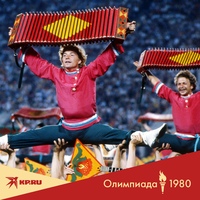
My mother — Svetlana did everything possible to hold the father in the CSK Navy military team and, respectively, in the USSR national team because he was repeatedly ready to withdrawal from CSK Navy military.
The unique photo — USSR national team on a pedestal of Winners of the Olympic Games with the Olympic medals has remained. On this photo the father (the third on the right) looks at mother who is off-screen aside. When all athletes have gone down from a pedestal, the father has approached mother, has removed the Olympic medal from the neck, and has put on it mother with words: “It is your medal!”
Vladimir Akimov became the Olympic Champion. He was 27 years old.
THE OLYMPIC CHAMPION – 1980, GEORGY MSHVENIYERADZE REMEMBERS
As it has appeared, I hardly remember the events of 30 years ago.
When you have appealed to me to write couple of lines of memories of your father, at first I didn’t know what to answer. I can’t write the sugary and invented memoirs and I don’t want.
Your father, as well as any of us, possessed merits and demerits inherent in each person and you, for certain, want to learn about him — what he was? The real, not invented Vladimir Akimov in life, and in the opinion of the people surrounding him … I have plunged into memoirs … Volodya Akimov, Volodya Akimov…
I will tell at once we weren’t friends, communicated, being on collecting, different age, different interests, the different companies … And still he hasn’t passed for me unnoticed.
The memories are all coming and coming… As for me I always remember Volodya Akimov in the water, more than on the land, with a focus on victory, with confidence in his forces. All this has helped us more than once in difficult situations.
Real hope and guardian of forwards! Possessing good physical data, long hands that in water polo big plus and good coordination, he managed to intercept the ball addressed to “columns” (forwards), at the same time being at them behind the back! Easy and high-speed, he constantly broke in counterattacks, supporting our mobile forwards.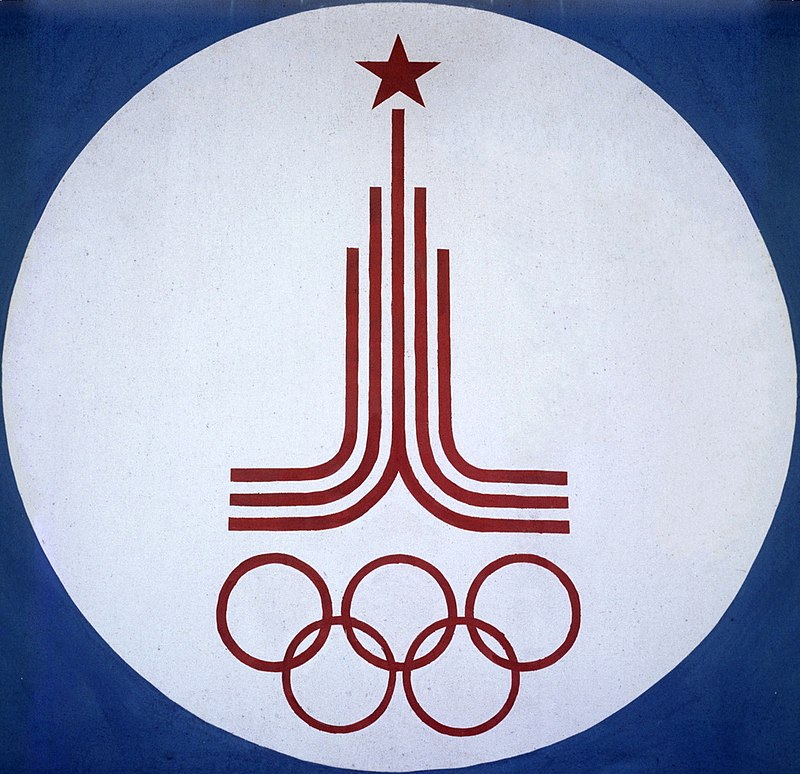
Mischa Ivanov and me, quite often was sponsored by two defenders (in sports argo it is called “zone” or “secure”), so we were neutralize and only thanks to “a long-range artillery” such Volodya Akimov, “Stepanycha” (Alexey Barkalov), Zhenya Grishin, then game of our “columns” was effective…
Akimov, Barkalov, Grishin quickly forced a series of powerful and exact throws rivals, to realize an inaccuracy of the chosen tactics … Rivals it is compelled passed to pressure somehow to be protected from terrible blows and then already columns had a good opportunity to show the abilities, but also here it was necessary to receive a good pass in time!
And here Volodya Akimov was one of those experts who perfectly brought a ball to us in the right place and in time. Many goals have been scored by forwards thanks to his help.
Thank you for your request – to tell you about the father. Thanks to your request, Roman, I have survived again events of those years. I have remembered everything and I have seen Volodya as he actually was – the nice, naughty, good guy, the Honoured Master of Sports. Blessed be his memory!
Blessed be his memory!
It was fine time in which we were young, successful are ambitious … Words of the Senior trainer of the national team B. N. Popov became the slogan of team. In spite of the fact that your father and all of us sought to become masters of the highest class, “we weren’t the team consisting of stars, we were star team “. It is history and in it our names are already unseparable …”
The Olympic Champion – 1980, World Champion, Honored Master of Sports, Georgi Mshvenieradze.
On the photo – a part of the Olympic team of 1980 with coach Boris Popov in the Kremlin after the ceremony of awarding (Vladimir Akimov – second from the left):
VLADIMIR AKIMOV AND NIKOLAI KARACHENTSOV
My father was on friendly terms with many outstanding persons of that time: Vladimir Vysotsky, Valery Kharlamov, Alexander Abdulov, Saveli Kramorov, Nikolay Karachentsov and many others.
I heard about friendship of Vladimir Akimov and the actor Nikolay Karachentsov from mother and water polo players.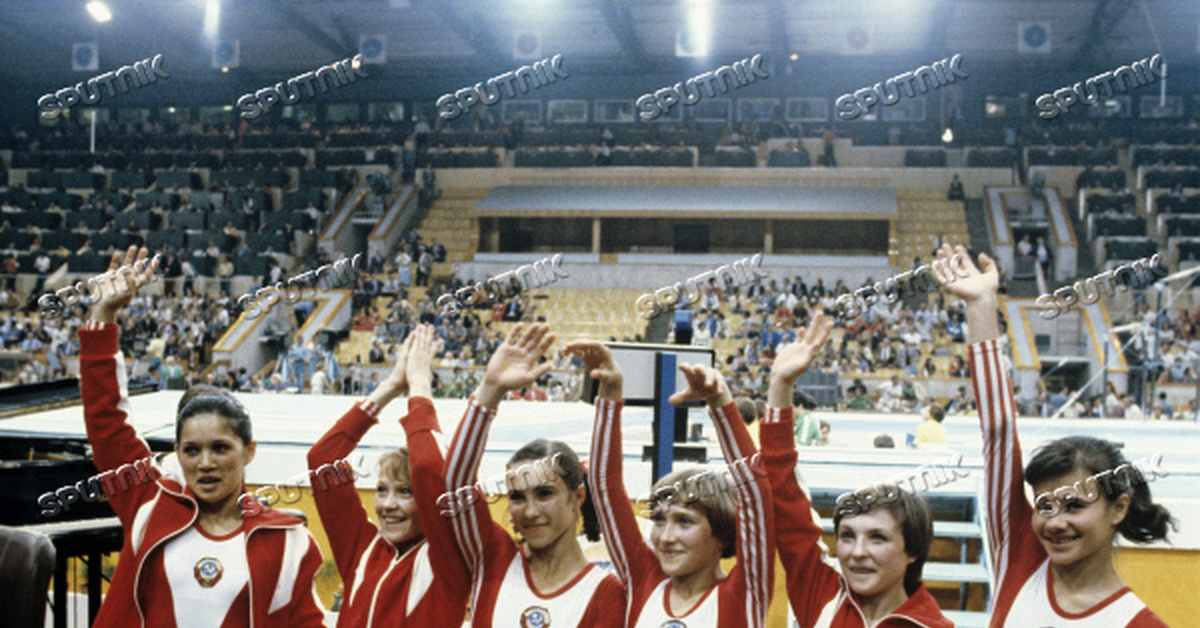 Their story of acquaintance was told to me by the twice Olympic Champion Vyacheslav Sobchenko.
Their story of acquaintance was told to me by the twice Olympic Champion Vyacheslav Sobchenko.
We flew in October, 1980 on one plane with Lenkom theater, the full staff. Volod’ka has seen Karachentsov and itself has approached him with a question: “You are Kim?” (Karachentsov in 1979 has played Kim Faleev’s role in the movie “The Investigation Is Carried on by Experts”). Karachentsov has answered: “Kim!” Volodya has told: “And I am Akim! We will be familiar!” They became friends and were called by everybody “Kim and Akim”.
Vyacheslav Sobchenko· Twice Olympic Champion
Лейк-Плэсид Зимние Олимпийские игры 1980
Загрузка…
Дата13 февраля 1980 г. — 24 февраля 1980 г.
СтранаСША
Спортсмены1072
Команды37 Хоккейная команда, сотворившая »Чудо на льду»
Лейк-Плэсид 1980 | Зимние Олимпийские игры
Эрик Хайден — Конькобежный спорт
Лейк-Плэсид 1980 | Зимние Олимпийские игры
Ирина Роднина — Фигурное катание
Лейк-Плэсид 1980 | Олимпийские зимние игры
Ханни Венцель — Горнолыжный спорт
Лейк-Плэсид 1980 | Олимпийские зимние игры
Познакомьтесь с первой словенской семьей прыгунов с трамплина
Следы: семейные истории с Балкан
Об играх
Искусственный снег
Чтобы все мероприятия проходили в наилучших условиях, для производства искусственного снега использовалось множество снегоуборочных машин — впервые на Олимпийских играх.
Чемпионы по слалому
Великий шведский лыжник Ингемар Стенмарк выиграл гигантский слалом и слалом. В обеих гонках он отставал в первом заезде, но сенсационно вернулся во втором. Ханни Венцель сделала то же самое в женских гонках, сделав свою нацию, Лихтенштейн, самой маленькой страной, в которой родился олимпийский чемпион.
Лейк-Плэсид Наследие Зимних Олимпийских игр 1980 года
Откройте для себя непреходящее наследие, которое этот выпуск Олимпийских игр оставил для своих хозяев.
Памятные чемпионы
Немец Ульрих Велинг в третий раз выиграл лыжное двоеборье, а российская фигуристка Ирина Роднина совершила такой же подвиг в своем виде. В биатлонной эстафете Александр Тихонов из СССР завоевал свою четвертую золотую медаль подряд, а его соотечественник Николай Зимятов завоевал три золотые медали в лыжных гонках.
Пять исторических золотых медалей
Американский конькобежец Эрик Хайден выиграл все пять соревнований по конькобежному спорту на дистанции от 500 до 10 000 метров, установив олимпийский рекорд в каждом из них. Он стал первым человеком в олимпийской истории, выигравшим пять золотых медалей в индивидуальных соревнованиях на одних и тех же Играх.
Он стал первым человеком в олимпийской истории, выигравшим пять золотых медалей в индивидуальных соревнованиях на одних и тех же Играх.
НОК: 37
Спортсмены: 1,072
Мероприятия: 38
Добровольцы: 90 048 6 703
СМИ: Н/Д
Второй раз
Это был второй раз, когда Игры проводились в Лейк-Плэсид, первый раз в 1932 году.
Церемонии
Февраль 1980 года, Лейк-Плэсид. Шествие делегации Коста-Рики (КПР).
Официальное открытие Игр по телефону:
Вице-президент США Уолтер Мондейл
Зажжение Олимпийского огня по телефону:
Доктор Чарльз Морган Керр )
Присяга официальных лиц:
Терри МакДермотт (конькобежный спорт)
Таблица медалей
См. список команд и медалей, завоеванных каждой из них.
См. таблицу. Америка
INGEMAR Stenmark — Швеция
Лейк-Плэсид 1980 | Олимпийские зимние игры Лейк-Плэсид
1980
Откройте для себя Игры
Бренд
Для каждой Олимпиады разрабатывается фирменный стиль.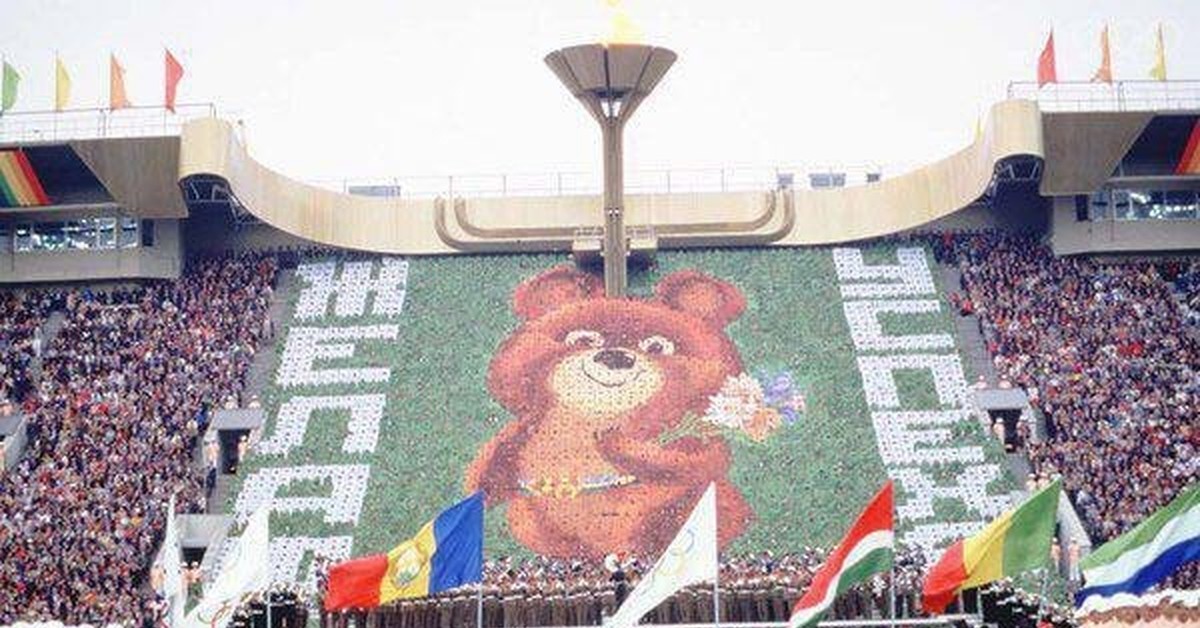
Торговая марка
Медали
Начав с оливкового венка, медали развивались с годами.
Медали
Талисман
Оригинальный образ, он должен придать конкретную форму олимпийскому духу.
Талисман
Факел
Знаковая часть любых Олимпийских игр, каждый организатор предлагает свою уникальную версию.
Факел
Олимпийские игры
Олимпийская сборная США 1980 года
Игра вызвала всю вообразимую шумиху с политическими и социальными последствиями. Линия «Железный хребет» Павелича, Харрингтона и Шнайдера привлекла внимание американцев. Проигрывая 1:0, Павелич сделал пас Шнайдеру, нанеся хороший удар, который попал в верхний угол. Русские ответили через три минуты только для того, чтобы увидеть, как Марк Джонсон сравнял счет за считанные секунды до конца периода. Когда они вернулись после перерыва, команда США была потрясена, увидев, что советский тренер Виктор Тиханов заменил Третьяка в воротах запасным вратарем Владимиром Мышкиным. Хотя казалось, что большой медведь был ранен, Советы вернулись, чтобы взять на себя инициативу и переиграли американцев со счетом 30-10 в двух периодах.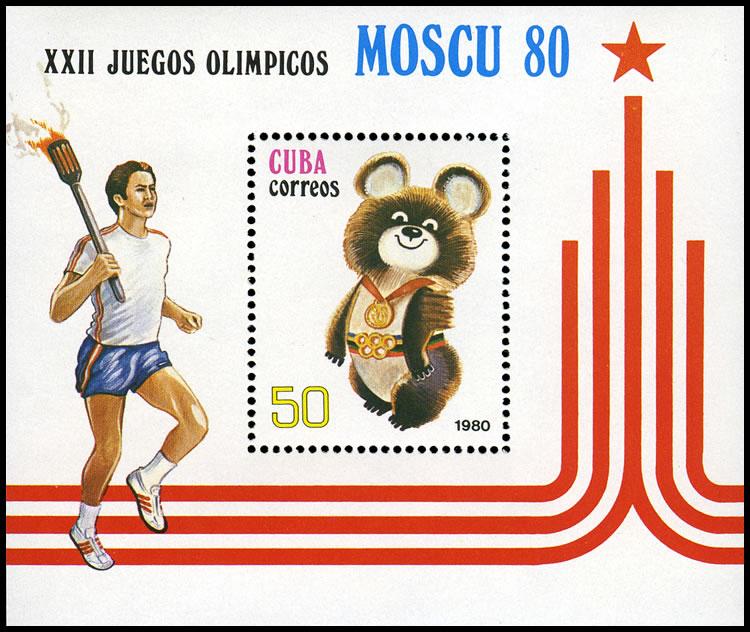 Джонсон забил свой второй гол в игре со счетом 8:39.третьего периода, чтобы сравнять счет 3: 3, создав героическую игру для «Железных рейнджеров».
Джонсон забил свой второй гол в игре со счетом 8:39.третьего периода, чтобы сравнять счет 3: 3, создав героическую игру для «Железных рейнджеров».
В середине третьего раунда Шнайдер забросил шайбу в российскую зону, а Харрингтон отдал ее своему старому напарнику по UMD Марку Павеличу. Затем Павелич сделал точный пас на вершину круга, где капитан команды Майк Эрузионе нанес удар, «выстрел, услышанный во всем мире». Последние 10 минут были, вероятно, самыми длинными в истории хоккея США, но американцы держались, поскольку вратарь Джим Крейг блестяще играл на протяжении всей игры. Затем, когда толпа отсчитывала последние секунды, Эл Майклс закричал: «Вы верите в чудеса? … Да!» И с этим американцы сделали это в игре за золотую медаль.
Пока игроки сходили с ума на льду, Брукс, как всегда психолог, быстро поставил своих игроков на место. Он кричал им, чтобы они не слишком задирались, и что им просто повезло, и они еще ничего не выиграли. На следующий день на тренировке Брукс устроил команде изнурительную тренировку, постоянно убеждая своих людей, что он не их друг, и до этого момента они ничего не доказали.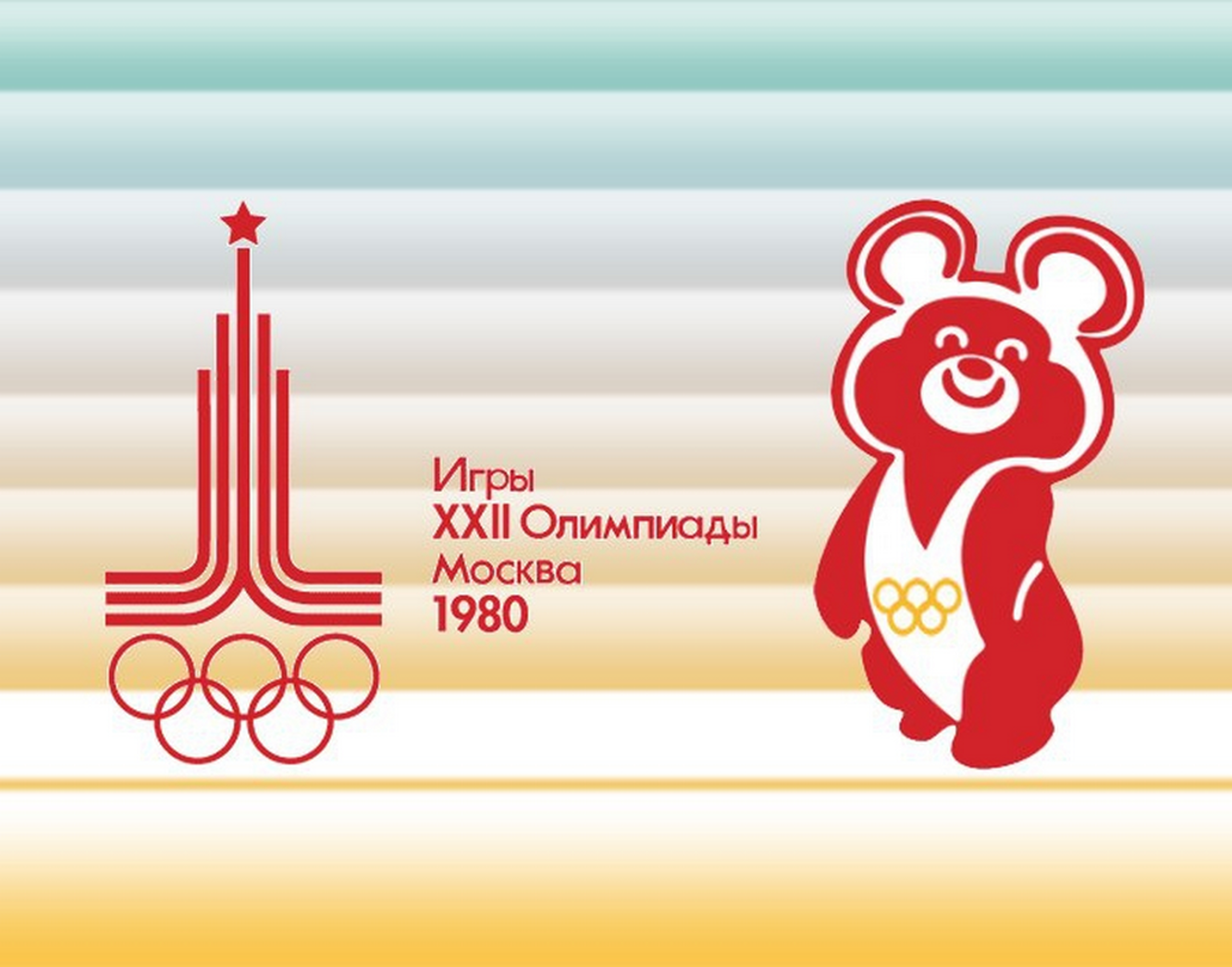 Это было частью его плана, заставить игроков презирать его и заставить их сплотиться между собой, чтобы стать сильнее.
Это было частью его плана, заставить игроков презирать его и заставить их сплотиться между собой, чтобы стать сильнее.
В финальной игре США сыграют с Финляндией, командой, обыгравшей чехов в другом полуфинале. Именно во время этой игры Брукс произнес знаменитые слова: «Ты родился, чтобы быть игроком. Ты должен был быть здесь. Этот момент твой». Его команда ответит, большое время.
Несмотря на поражение со счетом 1:0 в начале второго периода, Стив Кристофф вывел американцев на доску со счетом 4:39, нанеся хороший запястье. Однако финны вернули лидерство и вышли в третью очередь со счетом 2:1. После эмоциональной речи между антрактом Брукса, красноречиво напоминающей игрокам, что они будут сожалеть об этом моменте всю оставшуюся жизнь, если упустят его, США вышли воодушевленные и попытались войти в историю. На этот раз героем стал Фил Верхота, который принял пас Дэйва Кристиана в левом круге и забил гол на 2:25. При этом американцы почувствовали запах крови и сразу же пошли в яремную вену. Всего через три минуты Робби МакКланахан забил пять лунок с пасом Марка Джонсона и вывел сборную США вперед со счетом 3:2. Затем Джонсон спас положение, добавив собственный гол слева, всего через несколько минут, чтобы дать США подстраховку в два гола. Оттуда Джим Крейг просто продержался последние несколько минут игры, когда Эл Майклс на этот раз закричал: «Эта несбыточная мечта сбылась!» Внезапно в Лейк-Плэсиде начался столпотворение, когда команда бросила свои клюшки в толпу и образовала человеческую кучу в центре льда под скандирование «США! США!»
Всего через три минуты Робби МакКланахан забил пять лунок с пасом Марка Джонсона и вывел сборную США вперед со счетом 3:2. Затем Джонсон спас положение, добавив собственный гол слева, всего через несколько минут, чтобы дать США подстраховку в два гола. Оттуда Джим Крейг просто продержался последние несколько минут игры, когда Эл Майклс на этот раз закричал: «Эта несбыточная мечта сбылась!» Внезапно в Лейк-Плэсиде начался столпотворение, когда команда бросила свои клюшки в толпу и образовала человеческую кучу в центре льда под скандирование «США! США!»
Многие игроки были явно тронуты тем, что они сделали, о чем свидетельствует исполнение государственного гимна, когда вся команда собралась на верхней трибуне. Страна сошла с ума от вновь обретенного чувства национальной гордости. Sports Illustrated назвал команду «Спортсменами года». Журнал Life объявил это «спортивным достижением десятилетия», а диктор ABC Sports Джим Маккей назвал это «величайшим разочарованием в истории спорта».
Марк Джонсон, сын бывшего суслика «Барсука» Боба Джонсона, лидировал по результативности команды в выставочных играх и на Олимпийских играх. Линия Шнайдер-Павлелич-Харрингтон возглавила четыре результативные линии команды с 17 голами и 20 передачами в семи играх олимпийского турнира. Блестящий вратарь Джима Крейга, сыгравшего во всех семи поединках, стал важным фактором победы, как и блестящая игра защитников Дэйва Кристиана, Кена Морроу, Майка Рэмси, Нила Бротена и Билла Бейкера.
Непреходящее наследие
Благодарная нация приветствовала команду как героев. Затем последовал визит в Белый дом, а также выступления в городах по всей стране. Обложки коробок Wheaties, журналов, наград, почестей, выступлений и многого другого последовали за всеми игроками. В разгар холодной войны победа над могучим Советским Союзом была чем-то большим, чем они могли себе представить.
Оглядываясь назад, можно сказать, что ледяное чудо было достигнуто благодаря огромным амбициям в сочетании с отличными передачами, проверками, скоростью и уверенным контролем шайбы. Проницательно Брукс отказался играть в типичный хоккейный стиль.
Проницательно Брукс отказался играть в типичный хоккейный стиль.
«Я не хотел, чтобы команда выбрасывала шайбу без причины», — сказал Брукс, который в следующем сезоне стал тренером «Нью-Йорк Рейнджерс». «Это глупо. Это то же самое, что играть на плоскодонке при первом дауне. Стиль, который я хотел, сочетал в себе решительный чек североамериканской игры и лучшие черты европейской игры».
«Они были очень сильными духом и целеустремленными», — добавил Брукс. «Они пришли из самых разных слоев общества, многие соперничали друг с другом, но они собрались вместе и превратились в по-настоящему сплоченную команду. ответьте на звонок. Наш стиль игры, вероятно, отличался от всего, что было в Северной Америке. Мы приняли более гибридный стиль игры — немного канадской школы и немного европейской школы. воды, и им было очень весело играть в нее. Мы были быстрой, творческой командой, которая играла чрезвычайно дисциплинированно без шайбы. На протяжении всей Олимпиады они отличались большой устойчивостью.